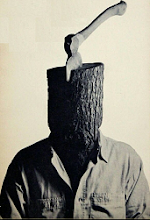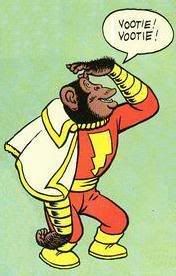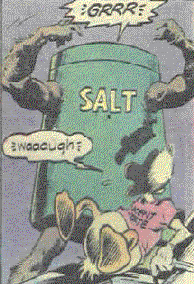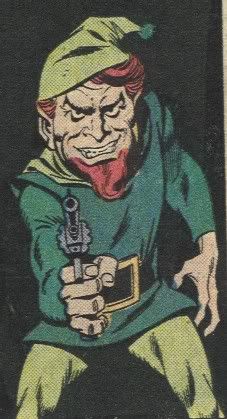How to Tell a True War Story
War comics are usually among the sillier books published. Not that men in tight spandex punching each other isn’t silly, but war books stand in a difficult position that can lead to strange things.
Superhero comics have no need to adhere to reality. They can if they want, but hey. Giant robots, laser-guided waterfowl, a bowling ball named “Ted” that has mastered Tuvan throat-singing, it’s all possible. After all, what can we compare it to?
War comics must deal with reality. There are plenty of folks who know what war is like. Moreover, the stories must balance the need to respect the truth with the needs of entertainment and the likelihood of pissing off readers and parents’ groups.
Usually this conflict results in sentimental works that try to massage reality, like the long-running series Sgt. Rock, or works that chuck reality out the window, like the out-and-out loopiness like Sgt. Fury and His Howling Commandoes.
But once it led to something truly astonishing: the EC Korean War comics.
In the early fifties, EC Comics produced a title called Two-Fisted Tales. Its first issues featured the expected stories of pirates, spies, and old-timey battles. Within a few more issues, things changed.
Harvey Kurtzman, editor and writer of Two-Fisted Tales, decided to tell true war stories. At least, as true as could be managed in a commercial comic publishing enterprise. The heroes of his stories weren’t necessarily all that heroic, and some were downright bastards. Most soldiers just wanted to survive.

Often the characters were civilians trapped in war zones. Inexplicable and lunatic occurrences were the norm.
EC Comics never told issue-length stories. Kurtzman’s war stories were never longer than eight pages, and characters never recurred. Thus each story carried the possibility of total disaster.

Everybody knows Batman will be back next month, but PFC McCallister on page nine had no guarantee.
This short story approach gave the comics the capacity to tell sweeping stories. Two-Fisted Tales #26 told the story of the battle of the Changjin (Chosin) Reservoir, when a large group of US and British soldiers, trapped by the Chinese army deep in North Korea in November-December 1950, fought a long-running battle to escape. Their retreat to South Korea was told from the perspective of several different Marines, Korean civilians, and a stray dog.

This astonishing approach didn’t last more than a few years. Kurtzman’s attention to detail exhausted him, and sales weren’t overwhelming.
The stories aren’t masterpieces. Not really. They do fall into clichés at times, or dip into sentimentality.
But the core was right. They feel like the truth.
Superhero comics have no need to adhere to reality. They can if they want, but hey. Giant robots, laser-guided waterfowl, a bowling ball named “Ted” that has mastered Tuvan throat-singing, it’s all possible. After all, what can we compare it to?
War comics must deal with reality. There are plenty of folks who know what war is like. Moreover, the stories must balance the need to respect the truth with the needs of entertainment and the likelihood of pissing off readers and parents’ groups.
Usually this conflict results in sentimental works that try to massage reality, like the long-running series Sgt. Rock, or works that chuck reality out the window, like the out-and-out loopiness like Sgt. Fury and His Howling Commandoes.
But once it led to something truly astonishing: the EC Korean War comics.
A true war story is never moral. It does not instruct, nor encourage virtue, nor suggest models of proper human behavior, nor restrain men from doing the things men have always done. If a story seems moral, do not believe it. If at the end of a war story you feel uplifted, or if you feel that some small bit of rectitude has been salvaged from the larger waste, then you have been made the victim of a very old and terrible lie. There is no rectitude whatsoever. There is no virtue. As a first rule of thumb, therefore, you can tell a true war story by its absolute and uncompromising allegiance to obscenity and evil.
--“How to Tell a True War Story,” by Tim O’Brien, in The Things They Carried
In the early fifties, EC Comics produced a title called Two-Fisted Tales. Its first issues featured the expected stories of pirates, spies, and old-timey battles. Within a few more issues, things changed.
You can tell a true war story if it embarrasses you. If you don’t care for obscenity, you don’t care for the truth; if you don’t care for the truth, watch how you vote. Send guys to war, they come home talking dirty.
Harvey Kurtzman, editor and writer of Two-Fisted Tales, decided to tell true war stories. At least, as true as could be managed in a commercial comic publishing enterprise. The heroes of his stories weren’t necessarily all that heroic, and some were downright bastards. Most soldiers just wanted to survive.

Often the characters were civilians trapped in war zones. Inexplicable and lunatic occurrences were the norm.
In many cases a true war story cannot be believed. If you believe it, be skeptical. It’s a question of credibility. Often the crazy stuff is true and the normal stuff isn’t, because the normal stuff is necessary to make you believe the truly incredible crazyness.For a handful of issues of Two-Fisted Tales and its spinoff book, Frontline Combat, Kurtzman’s war stories were unlike anything else on the stands. Basing the tales not only on solid research and his own war experiences but also interviews with returning veterans from Korea, they were powerful and moving in ways that no other war comics were.
You can tell a true war story by the way it never seems to end. Not then, not ever.
EC Comics never told issue-length stories. Kurtzman’s war stories were never longer than eight pages, and characters never recurred. Thus each story carried the possibility of total disaster.
Everybody knows Batman will be back next month, but PFC McCallister on page nine had no guarantee.
This short story approach gave the comics the capacity to tell sweeping stories. Two-Fisted Tales #26 told the story of the battle of the Changjin (Chosin) Reservoir, when a large group of US and British soldiers, trapped by the Chinese army deep in North Korea in November-December 1950, fought a long-running battle to escape. Their retreat to South Korea was told from the perspective of several different Marines, Korean civilians, and a stray dog.

This astonishing approach didn’t last more than a few years. Kurtzman’s attention to detail exhausted him, and sales weren’t overwhelming.
In a true war story, if there’s a moral at all, it’s like the thread that makes the cloth. You can’t tease it out. You can’t extract the meaning without unraveling the deeper meaning. And in the end, really, there’s nothing much to say about a true war story, except maybe “Oh.”
The stories aren’t masterpieces. Not really. They do fall into clichés at times, or dip into sentimentality.
But the core was right. They feel like the truth.
True war stories do not generalize. They do not indulge in abstraction or analysis.
For example: War is hell. As a moral declaration the old truism seems perfectly true, and yet because it abstracts, because it generalizes, I can’t believe it with my gut. Nothing turns inside.
It comes down to gut instinct. A true war story, if truly told, makes the stomach believe.





3 Comments:
Thank you, very interesting!
By Anonymous, at 10:02 PM
Anonymous, at 10:02 PM
So, I do not really suppose this is likely to work.
By экскурсии в барселоне, at 4:04 AM
экскурсии в барселоне, at 4:04 AM
I think that this is really cool,I want to have extra information about it , excellent way to share it
By viagra online, at 12:48 PM
viagra online, at 12:48 PM
Post a Comment
<< Home